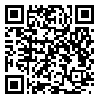Volume 7, Issue 4 (November 2020)
Avicenna J Neuro Psycho Physiology 2020, 7(4): 231-235 |
Back to browse issues page
Download citation:
BibTeX | RIS | EndNote | Medlars | ProCite | Reference Manager | RefWorks
Send citation to:



BibTeX | RIS | EndNote | Medlars | ProCite | Reference Manager | RefWorks
Send citation to:
Ziayee Chamgordani B, Bahreini Z, Kahrazee F. Effectiveness of Cognitive-Behavioral Therapy on Distress Tolerance and Coping with the Child’s Illness in Parents of Children with Thalassemia Major. Avicenna J Neuro Psycho Physiology 2020; 7 (4) :231-235
URL: http://ajnpp.umsha.ac.ir/article-1-212-en.html
URL: http://ajnpp.umsha.ac.ir/article-1-212-en.html
1- MSc, Department of Psychology, Faculty of Psychology and Educational Science, University of Sistan and Baluchestan, Zahedan, Iran
2- Ph.D. Candidate, Department of Psychology, Zahedan Branch, Islamic Azad University, Zahedan, Iran
3- Associate Professor, Department of Psychology, Faculty of Psychology and Educational Sciences, University of Sistan and Baluchestan, Zahedan, Iran ,Farhad_kahraz@ped.usb.ac.ir
2- Ph.D. Candidate, Department of Psychology, Zahedan Branch, Islamic Azad University, Zahedan, Iran
3- Associate Professor, Department of Psychology, Faculty of Psychology and Educational Sciences, University of Sistan and Baluchestan, Zahedan, Iran ,
Abstract: (2935 Views)
Introduction and Objectives: Major Thalassemia can be considered one of the biggest chronic physical disorders, which causes some psychological and social problems to patients and their families. This study aimed to investigate the effect of cognitive-behavioral therapy on the distress tolerance and level of coping with a child’s illness among the parents of children with major thalassemia.
Materials and Methods: This study was conducted based on a semi-experimental design with pretest and posttest. The statistical population consisted of all parents of Children with major thalassemia in Zahedan, Iran, during 2016. A total of 40 parents were selected based on convenience sampling and randomly divided into two experimental (n=20) and control groups (n=20). They were then requested to complete the distress and resistance questionnaires, and they participated weekly in eight 90-min intervention sessions based on cognitive behavioral therapy Data were analyzed in SPSS software (version 20) through multivariate covariance analysis.
Results: The results show that cognitive-behavioral therapy improves distress (F=9.82, P<0.004), tolerance (F=5.12, P<0.030), absorbed (F=7.43, P<0.010), assessment (F=4.73, P<0.037), and adjustment (F=6.70, P<0.014) dimension scores, and has an effect on group membership. Moreover, cognitive-behavioral therapy improved the level of coping with the disease dimension (F=32.61, P<0.0001) and the first factor (F=5.53, P<0.025). Additionally, this technique had a significant effect on posttest scores and group membership.
Conclusion: The results showed that cognitive-behavioral therapy increased the level of distress tolerance and improved the level of coping with the child's disease, compared to the control group. Evidence suggests that the parents of children with major thalassemia patients face many problems that can lead to high levels of anxiety and depression, tolerance of distress at a low level, despair and disappointment, as well as guilty feelings.
Materials and Methods: This study was conducted based on a semi-experimental design with pretest and posttest. The statistical population consisted of all parents of Children with major thalassemia in Zahedan, Iran, during 2016. A total of 40 parents were selected based on convenience sampling and randomly divided into two experimental (n=20) and control groups (n=20). They were then requested to complete the distress and resistance questionnaires, and they participated weekly in eight 90-min intervention sessions based on cognitive behavioral therapy Data were analyzed in SPSS software (version 20) through multivariate covariance analysis.
Results: The results show that cognitive-behavioral therapy improves distress (F=9.82, P<0.004), tolerance (F=5.12, P<0.030), absorbed (F=7.43, P<0.010), assessment (F=4.73, P<0.037), and adjustment (F=6.70, P<0.014) dimension scores, and has an effect on group membership. Moreover, cognitive-behavioral therapy improved the level of coping with the disease dimension (F=32.61, P<0.0001) and the first factor (F=5.53, P<0.025). Additionally, this technique had a significant effect on posttest scores and group membership.
Conclusion: The results showed that cognitive-behavioral therapy increased the level of distress tolerance and improved the level of coping with the child's disease, compared to the control group. Evidence suggests that the parents of children with major thalassemia patients face many problems that can lead to high levels of anxiety and depression, tolerance of distress at a low level, despair and disappointment, as well as guilty feelings.
Article Type: Research Article |
Subject:
Mother and child health
Received: 2019/12/2 | Accepted: 2020/06/25 | Published: 2020/11/16
Received: 2019/12/2 | Accepted: 2020/06/25 | Published: 2020/11/16
Send email to the article author
| Rights and permissions | |
 |
This work is licensed under a Creative Commons Attribution-NonCommercial 4.0 International License. |







